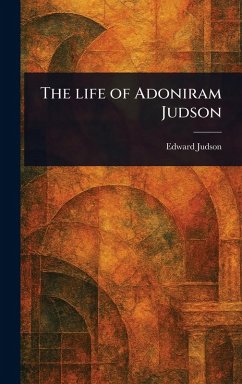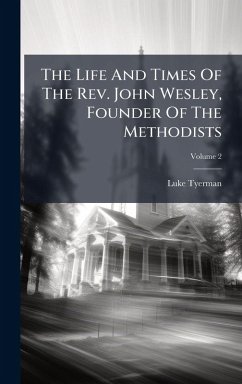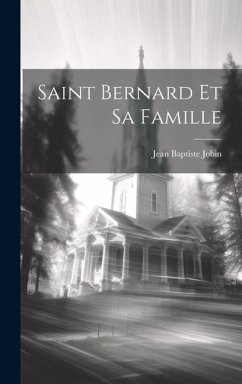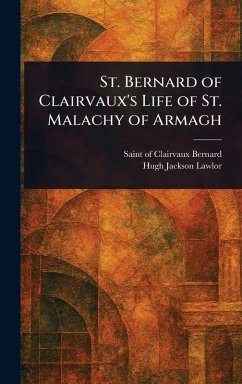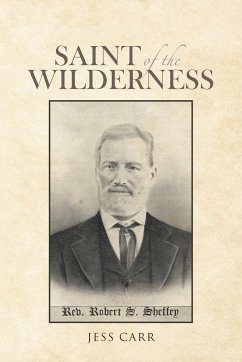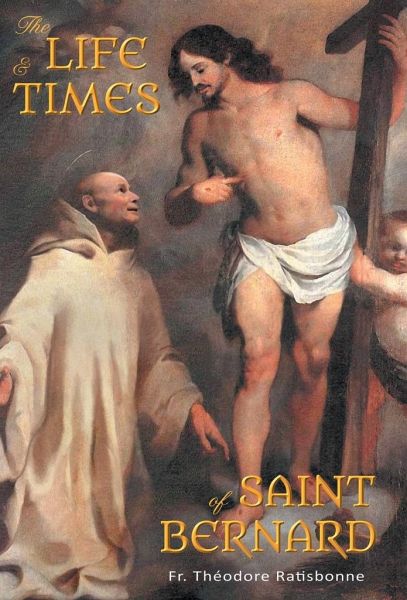
The Life and Times of Saint Bernard
Versandkostenfrei!
Versandfertig in über 4 Wochen
26,99 €
inkl. MwSt.

PAYBACK Punkte
13 °P sammeln!
A GIANT OF HIS TIMES THE LAST CHURCH FATHER Saint Bernard of Clairvaux lived in times of great ferment and division. Heresies were proliferating; the Holy See was threatened by schism; inveterate evils destroyed public morals; the Saracens menaced Christendom while Christian princes provoked each another to endless and sanguinary combats. Into these troublous times God sent Bernard, as a help and remedy. A man of astonishing holiness and charisma, dissolute and unruly kings, princes, and devils trembled before him; popes and bishops sought his counsel; heretics could not withstand his wisdom; ...
A GIANT OF HIS TIMES THE LAST CHURCH FATHER Saint Bernard of Clairvaux lived in times of great ferment and division. Heresies were proliferating; the Holy See was threatened by schism; inveterate evils destroyed public morals; the Saracens menaced Christendom while Christian princes provoked each another to endless and sanguinary combats. Into these troublous times God sent Bernard, as a help and remedy. A man of astonishing holiness and charisma, dissolute and unruly kings, princes, and devils trembled before him; popes and bishops sought his counsel; heretics could not withstand his wisdom; multitudes thronged to hear his sermons where obstinate hearts melted like wax, dissolved in tears, and were set afire with love for Jesus. The astounding profusion of miracles with which God graced St. Bernard's words and deeds are, as those of his Lord Jesus, too numerous to recount, but many appreciable ones are related in this book. "There is, perhaps, in the annals of the Church no more remarkable instance of the power of an individual over the men of his age than in St. Bernard. A solitary religious, in the state of poverty, without office, or rank, or worldly control, or even the ecclesiastical dignities which command the obedience of others, he acquired and wielded a sway over, not his own brethren of the cloister alone, but over people of every character, rank, and state-over the priesthood, over the episcopate, over princes, kingdoms, nations, and pontiffs. The means and appliances for this vast and sustained superiority of the individual over his age were all contained within the four walls of his cell; or, more truly, within the one great heart, inflamed with the love of God; the solitary intelligence, illuminated by the light of faith; and the single will, energetic in itself, and made inflexible by union with the Divine. There seems to have been in this one mind an inexhaustible abundance, variety, and versatility of gifts. Without ever ceasing to be the holy and mortified religious, St. Bernard appears to be the ruling will of his time. He stands forth as pastor, preacher, mystical writer, controversialist, reformer, pacificator, mediator, arbiter, diplomatist, and statesman. He appears in the schools, at the altar, in the preacher's chair, in councils of the Church, in councils of the State, amid the factions of cities, the negotiations of princes, and the contests of antipopes. And whence came this wondrous power of dealing with affairs and with men? Not from the training and schooling of this world, but from the instincts, simplicity, and penetration of a mind profoundly immersed in God, and from a will of which the fervor and singleness of aim were supernatural." ~ From the Preface. Born in France in 1090, Bernard entered the Abbey of Citeaux as a young man. So charismatic was he, thirty of his relatives entered with him, including five of his brothers. He was canonized in 1174, and declared a Doctor of the Church in 1830 by Pope Pius VII. He is called "Doctor Mellifluous" and the "cithara of Mary" for his eloquence, and is considered the last of the Fathers of the Church.



